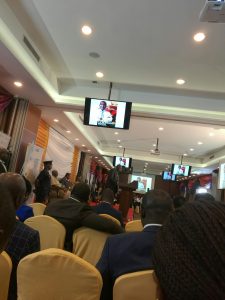 GHANA has issued a 30-day ultimatum to foreigners in the country’s retail sector to leave 48 designated markets across the country.
GHANA has issued a 30-day ultimatum to foreigners in the country’s retail sector to leave 48 designated markets across the country.
The directive which was issued by the country’s Ministry of Trade and Industry on Friday stated that, “notwithstanding numerous interventions by the government to encourage non-Ghanaians engaged in retail trading in the market place to relocate, some non-Ghanaians have refused to comply with the directive.”
The ministry named 35 markets in Accra, 7 in Ashanti region and 2 each in the Brong Ahafo and Eastern regions. The rest are in the Northern and Upper East regions.
It further warned that the “non-Ghanaians who further contravene the provisions of the Act 865 in the GIPC Law 2013 shall be prosecuted.”
In June this year, thousands of traders belonging to the Ghana Union of Traders Association (GUTA) in Accra and Kumasi closed down their shops in protest against government’s inability to eject the foreign traders from their markets.
The striking traders also said that their protest was meant to serve as a caution to the government to act swiftly to reverse their policies. They lamented about how policies such as special levy of 3% on imports, the increase in the Value Added Tax (VAT) by 2.5%, coupled with the depreciation of the cedi and illegal charges at the ports were hostile to them (the local traders).
The Nigerian traders in these markets have pleaded for exemptions, usually citing some ECOWAS protocols.
The Public relations officer of the Nigerians in Ghana, Barry Ndu Nwaihim said, “We have explained to GUTA that if they start this today definitely it must have an effect on Ghanaian traders who are trading in Nigeria,” he said.
He said there are Nigerians with Ghanaian spouses and thus sending them out of the market will affect many families.
The Nigerian traders, dragged Ghana to the ECOWAS Community Court of Justice in 2013 over the enforcement of the Ghana Investment Promotion Council (GIPC) Act.
The act, which was revised in July 2013, among others, specifies the criteria foreigners would have to meet before they can be allowed to do business in the country.
When the issue came up in 2013, the Ministry of Trade directed all the traders to regularize their business with the registrar general’s department in order to pay the appropriate taxes.
The ministry also demanded that all foreigners legalize their stay by “acquiring working and resident permits.”
African Eye News





